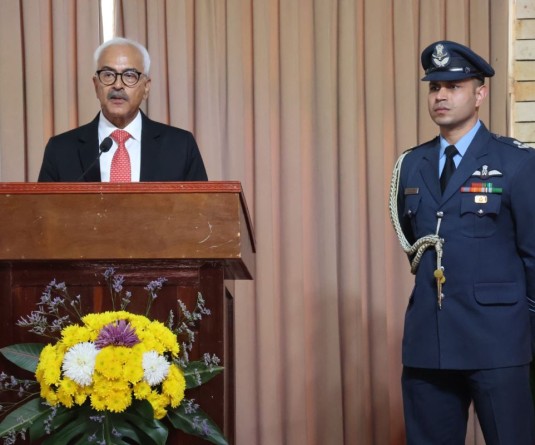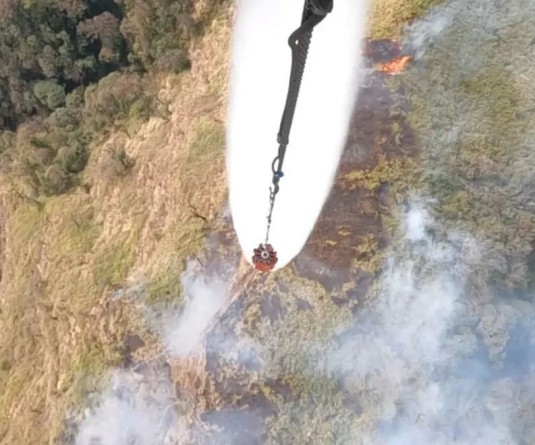Members of the Naga delegation with Lord Boateng at the House of Lords, London, during their visit to advocate for the repatriation of ancestral human remains.

LONDON, JUNE 13 (MExN): Naga elders and tribal leaders from Northeast India were hosted at the House of Lords in London on June 10, in a symbolic and emotional moment as they continued their campaign to repatriate ancestral human remains held in the United Kingdom.
The delegation met with the Lord Boateng of Akyem and Wembley, a member of the House of Lords, who expressed solidarity with the Naga people and Indigenous communities globally seeking the return of their ancestors’ remains. The visit follows international condemnation in October 2024 over a proposed sale of human remains—originating entirely from the Global South—by an Oxfordshire auction house. Among them were Naga ancestral remains.
Lord Boateng, along with Baroness Black of Strome, had been instrumental in calling for a parliamentary debate that ultimately helped prevent the sale. Their actions, alongside advocacy from Indigenous groups, marked a significant turning point in the UK’s reckoning with the ethical treatment of human remains.
The Naga delegation is in the UK as part of an ongoing effort to work with the Pitt Rivers Museum, which holds Naga ancestral remains in its collection. During the meeting, the Naga team thanked Lord Boateng for his steadfast commitment to ensuring dignity and justice for the ancestors whose remains were taken during colonial times.
Drawing from his Ghanaian roots, Lord Boateng noted parallels between the histories of Ghana and India—both former British colonies that fought for their independence. He reminded the Naga delegation that while freedom has come to many former colonies, true justice remains elusive. “Parliament was the site, on the one hand, where Indigenous lands were taken. On the other hand, Parliament was also the site where acts of independence were signed,” he said.
Lord Boateng also shared with the delegation the official report on the recent House of Lords debates concerning the sale and public display of human body parts. The debates are part of a broader initiative seeking legal reforms to prohibit such practices. “No human remains should be treated as possessions, curiosity, or for profit. It is morally wrong and offensive,” he said. “I salute your struggles to give voice to all Indigenous Peoples because this process represents the Indigenous peoples of the world. We are one people and all of us are deserving of respect.”
Representing the Naga delegation, Thejao Vihienuo, President of the Angami Public Organisation, thanked Lord Boateng for the invitation and spoke about the need to address the legacy of colonialism that resulted in the displacement of ancestral remains. Other tribal leaders echoed this sentiment, stressing the urgency of returning the remains to the Naga homeland.
“There are many ancestors belonging to our people, and the spirits will not find rest and peace until we bring them home,” said Ngongba Tange Thamlong Phom, Vice President of the Phom Peoples’ Organization.
Rev Aching Peihwang Wangsa, representing the Konyak Union, reflected on the emotional experience of witnessing the remains of ancestors taken away decades ago. Dr Ngullie, an elder from the Forum for Naga Reconciliation (FNR), invoked the spiritual significance of the visit. “We have been called to this place by our ancestors who were cared for by the Pitt Rivers Museum,” he said. “We are here to reconcile and bring healing not only to the Naga lands, but to humanity.”





